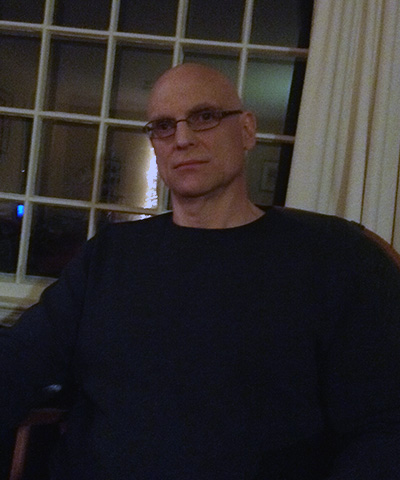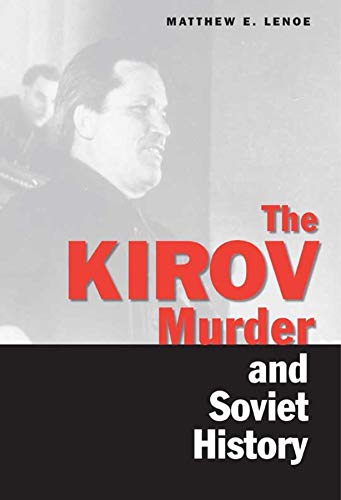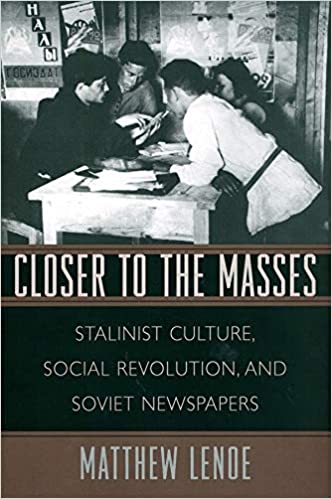
Matthew E. Lenoe
Professor of History
Graduate Career Advisor
PhD, University of Chicago, 1997
- Office Location
- 370A Rush Rhees Library
Office Hours: By appointment
Research Overview
I am not accepting new graduate student advisees for our MA and PhD programs.
Interests: Russian and Soviet History; Stalinist Culture and Politics; History of Mass Media; Soviet Soldiers in World War II; Russia in East Asia; Leninism in World History
Matthew Lenoe received his Ph.D. in Russian/Soviet history from the University of Chicago in 1997. Before arriving at Rochester in 2006 he held tenure track positions at University of Arkansas/Little Rock and Assumption College (Worcester, MA), as well as a visiting assistant professorship at Harvard University. His first book, "Closer to the Masses: Stalinist Culture, Social Revolution and Soviet Newspapers", which examined the origins of high Stalinist culture, including Socialist Realist literature, in the newspaper press of the 1920s, was published by Harvard University Press in 2004. His second, "The Kirov Murder and Soviet History," which used new archival documents on the Kirov murder to demonstrate that Stalin was not involved in orchestrating the murder, came out with Yale University Press, in 2010.
Lenoe is at present completing a book on the emotions and daily experiences of ordinary Soviet soldiers in the Second World War. It is tentatively titled "Emotions, Experience and Apocalypse in the Red Army, 1941-1942." Lenoe's other teaching and research interests include daily life under authoritarian regimes, the worldwide history of propaganda and surveillance, Russia in northeast Asia, the global Cold War, and comparative revolutions.
A partial list of graduate fields I supervise includes all eras of Russian/Soviet history, history of gender in Russia and the Soviet Union, global Cold War, comparative authoritarianism, history of emotions and daily life, the "new" military history, and the Eastern Front in World War II.
A partial list of graduate fields I supervise includes all eras of Russian/Soviet history, history of gender in Russia and the Soviet Union, global Cold War, comparative authoritarianism, history of emotions and daily life, the "new" military history, and the Eastern Front in World War II.
Graduate Research Fields
A partial list of graduate fields I supervise includes all eras of Russian/Soviet history, history of gender in Russia and the Soviet Union, global Cold War, comparative authoritarianism, history of emotions and daily life, the "new" military history, and the Eastern Front in World War II.
I am accepting new graduate student advisees for our MA and PhD programs.
Courses Offered (subject to change)
- HIST 131: History of Russia to 1692 (RST 155)
- HIST 132: History of Imperial Russia, 1692-1914
- HIST 133: History of the USSR and Post-Soviet Russia
- HIST 200: Gateway to History: The Eastern Front
- HIST 208: Comparative Modern Revolutions
- HIST 238(W): Ukraine, Russia: History and History Wars
- HIST 239/239W: Totalitarianism and Everyday Life
- HIST 323W: World War II: The Eastern Front
- HIST 332W/432: Stalinism (RST 246)
- HIST 334W/431: The Soviet Union and the Cold War
- HIST 500: Problems in Historical Analysis
Selected Publication Covers


Selected Publications
- The Kirov Murder and Soviet History, Annals of Communism Series, Yale University Press (2010)
- Closer to the Masses: Stalinist Culture, Social Revolution, and Soviet Newspapers, Cambridge: Harvard University Press (June 2004).
- "In Defense of Timasheff's Great Retreat," Kritika: Explorations in Russian and Eurasian History 5, 4 (Fall 2004): 721-730.
- "NEP Newspapers and the Origins of Soviet Information Rationing," Russian Review 62, no. 4 (October 2003): 614-636.
- "Did Stalin Kill Kirov and Does It Matter?," article reviewing the literature on the Kirov assassination, Journal of Modern History 74, no. 2 (June 2002): 352-380.
- "Letter-Writing and the State: Reader Correspondence with Newspapers as a Source for Early Soviet History," Cahiers du monde russe 40, nos. 1-2 (January-June 1999): 139-170.
